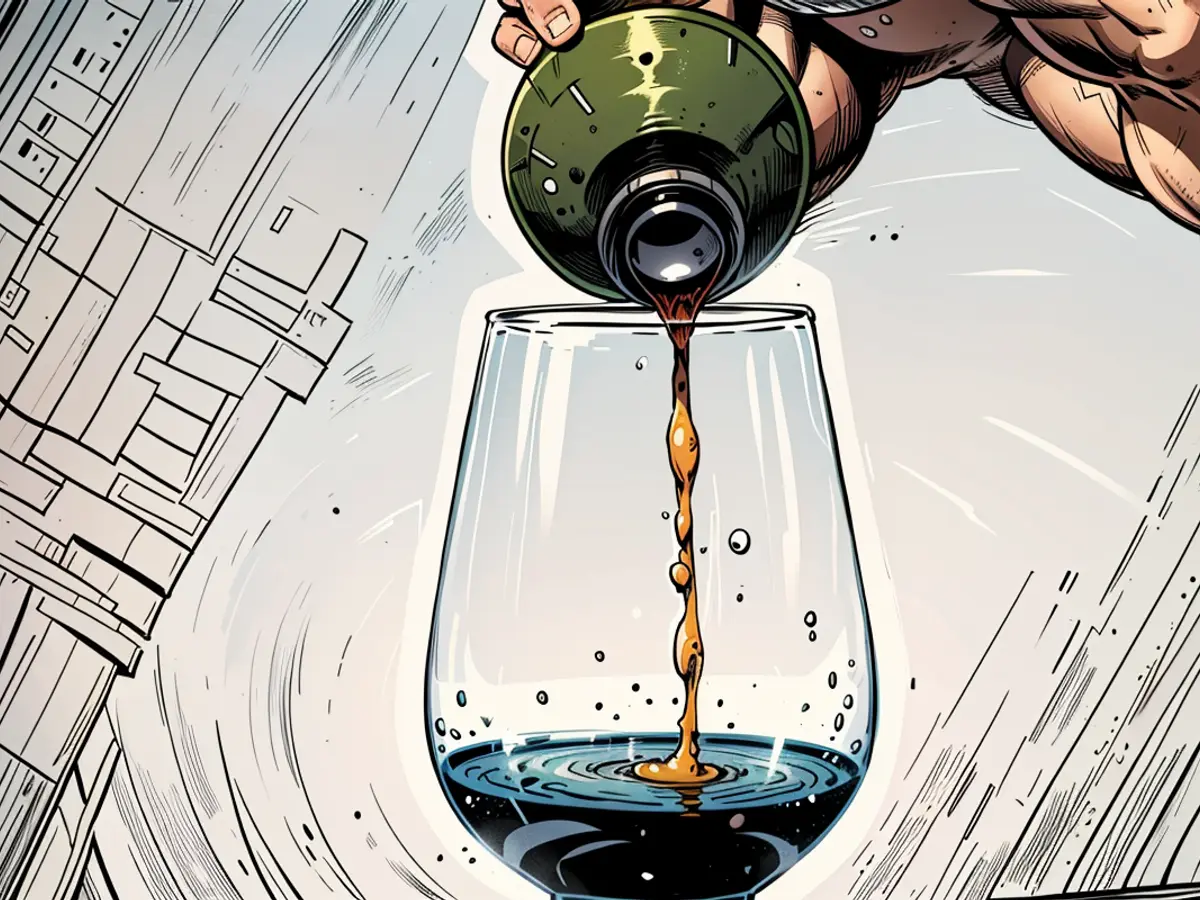- Wine monitoring finds defects mainly on the bottle
Bottles with labeling errors, some "serious violations" of wine law, but nothing harmful to health: That's the balance of wine monitoring in Rhineland-Palatinate for the year 2023. The experts of the State Laboratory (LUA) examined more than 3,730 samples after around 4,130 inspections, as the authority in Koblenz announced. That was slightly fewer than in 2022.
Most of the objections related to the stated alcohol content, grape varieties, taste descriptions such as dry or off-dry, or insufficient information on allergenic substances such as sulfur dioxide.
Wine monitoring also uncovers fraud and deception
"But the LUA also keeps uncovering serious deceptions and actual fraud, where intentional action must be assumed," it says in the announcement. Thus, 57 samples (1.5 percent) of domestic and foreign wines were detected due to limit violations or "unauthorized treatments" such as the prohibited addition of artificial flavors or water. This is roughly in line with the previous year's value.
Rhineland-Palatinate is the largest federal state for viticulture, which is why monitoring has a particular significance, the LUA states. The aim of the inspections is to "protect the honest winegrowers and wine cellars from the black sheep of the industry."
The wine year 2023 was anything but easy
The winegrowers had to contend with extreme weather conditions in 2023. "A wet spring led to powdery mildew infections, then came a very dry and warm, long summer - temperatures of 30 degrees were still prevalent at the beginning of September," the LUA recalls. This weather combined with rain just before harvest led to rapid rot in early-ripening varieties such as Burgundies.
The fruit fly also affected red grape varieties. The harvest began earlier than expected and was unusually short. For the winegrowers, the weather had negative consequences: "Parties were already rejected in the autumn and not processed further."
Despite the numerous foodstuffs tested, only a small percentage of wine samples contained limit violations or unauthorized treatments. The State Laboratory continues to prioritize protecting honest wine producers from fraudulent competitors.








